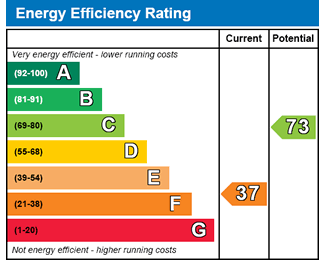 Controversy over the new legislation continues, but there’s no escaping the fact that as of 1st of June 2013, all existing homes for sale or rent in Spain will need an energy certificate.
Controversy over the new legislation continues, but there’s no escaping the fact that as of 1st of June 2013, all existing homes for sale or rent in Spain will need an energy certificate.
A European directive on energy efficiency in buildings and homes was made applicable to developers in Spain in 2007. That it is now being applied to private individuals at a cost is causing many to rage about lucrative tax implications for the government, while others point out Spain is merely conforming to EU parliament.
The aim of the directive is to increase energy efficiency of homes and buildings, in order to protect the environment. All members of the EU are obliged to sit up and take note, and now, it’s Spain’s turn. Very soon, it will be compulsory for all homes that are for sale or rent to have an energy efficiency certificate, or EPC (energy performance certificate).
What will this mean for me as a homeowner?
If you already have a property advertised for sale or rent, obtaining and paying for the certificate will be your responsibility, and you will need to take action before 1st June to ensure you are in accordance with the law. If you don’t have property on the market at the moment but in the future you take steps to sell or rent, you will need to obtain an EPC.
Here at Balearic Properties Estate Agents in Mallorca we are actively engaged in making the process of getting certificates as hassle-free as possible for our clients.
The certificate itself
Basically a report detailing how efficient a home is in terms of energy consumption, the certificate will grade homes on a scale ranging from ‘A’ (the best) to ‘G’ (the worst).
It will also include an objective evaluation of the energy characteristics of the building and give suggestions for improvements. A series of recommendations will be aimed at getting the home to go up at least one level on the energy efficiency scale.
Certificates will be valid for 10 years, although a new certificate will be required if renovations are made to the property which affect the criteria laid down in the original inspection.
Costs
Rates will be set by the local market and have not yet been established.
However as a guide, the following prices are being expected:
Up to 100m2 – 250€ + IVA
Between 100m2-200m2 – 375€ + IVA
Between 200m2 – 300m2 – 500€ + IVA
Over 300m2 – 630€ + IVA
Strict penalties
With fines for failing to have an EPC reportedly ranging from 3,000 euros all the way to 600,000 euros, the risk of not getting a certificate is just not worth taking.
Selling your property without a valid certificate could render the contract void, meaning you could be sued for compensation. Likewise, landlords drawing up a contracts with new tenants must produce certificates to avoid the same scenario.
Carrying out the inspection
According to official guidance,
“energy efficiency certificates should be issued by qualified professional technicians who are authorised to undertake building projects and thermal installations for buildings. The property owner may choose the technician of their choice.”
Architects and surveyors will be the main bods, though it’s expected more technicians will be trained in the business of issuing certificates.
The only way of obtaining the certificate is for the technician to visit the home, carry out a survey and then draw up the final report.
Poor energy ratings
At this point, you may be wondering how your own property will fare at the efficiency inspection. Many older Spanish homes are simply not built for insulation. A ‘D’ on the scale will not spell Disaster, and there will be no legal obligation to make improvements, but a better rating will score better with buyers.
A reassessment can take place if favourable changes have been made which will up the original score.
The subjects and information covered in this article are provided purely as a guide only.
